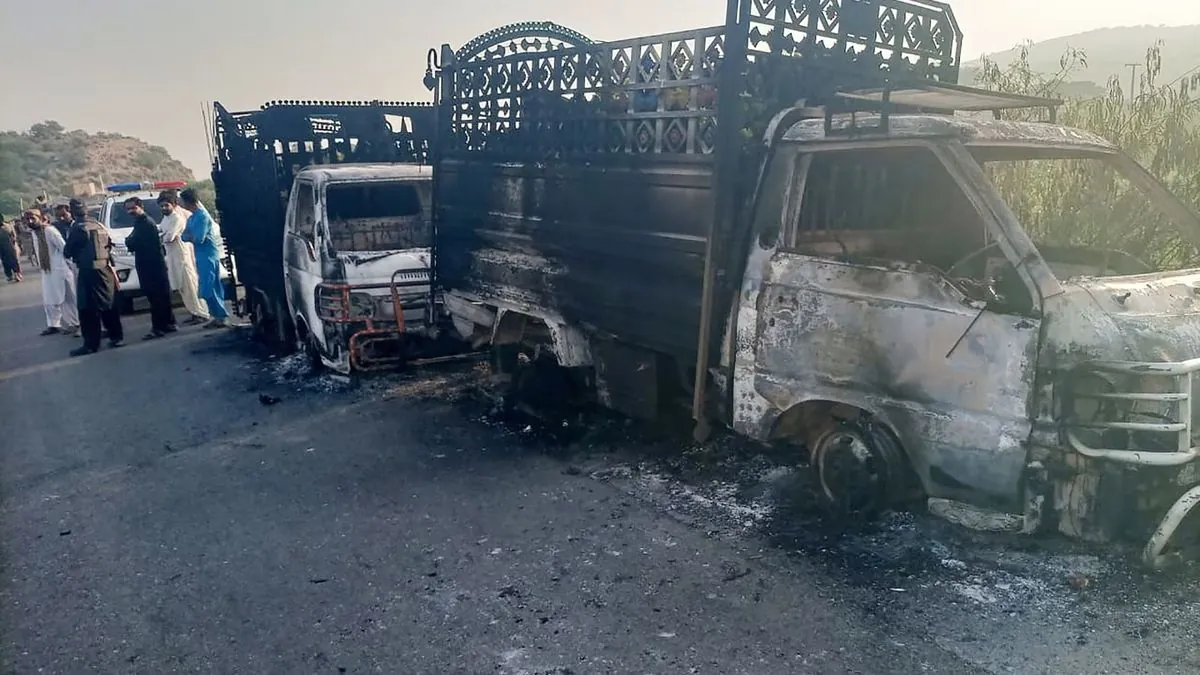In a recent incident that underscores the ongoing tensions in Pakistan's largest province, a truck driver named Munir Ahmed survived a violent attack by ethnic militants in Balochistan. The assault, which occurred on August 26, 2024, resulted in at least 70 fatalities, including 23 civilians.
Ahmed, aged 50, was part of a four-truck convoy traveling through Balochistan when armed individuals intercepted them approximately an hour from Quetta, the provincial capital. The attackers ordered the drivers out of their vehicles and lined them up on the roadside before opening fire. Despite being shot five times in the arm and back, Ahmed survived the ordeal.
The Baloch Liberation Army (BLA), an armed group seeking secession for the resource-rich province, claimed responsibility for the attacks. This organization, founded in 2000, has been designated as a terrorist group by Pakistan and several other nations.
Balochistan, covering an area of 347,190 square kilometers, has been experiencing insurgency and conflict since 1948. The province is known for its vast natural resources, including oil, gas, copper, and gold, which have been a source of contention between the local population and the central government.
The recent attack is part of a broader pattern of violence in the region. Assailants targeted multiple vehicles on highways, killing passengers in front of their families. This incident highlights the complex security challenges faced by Balochistan, which shares borders with Iran and Afghanistan.
Ahmed is currently recovering in a hospital in Punjab, far from his home. The survivor expressed distress over the loss of his colleagues and uncertainty about his future livelihood. His experience sheds light on the human cost of the ongoing conflict in Balochistan.
The province's strategic importance is underscored by projects like the Gwadar Port, a key component of the China-Pakistan Economic Corridor (CPEC). However, the region also faces significant socio-economic challenges, including a low literacy rate of around 41%, the lowest among all Pakistani provinces.
As Balochistan grapples with these issues, incidents like the recent attack continue to impact both local communities and the broader stability of the region. The situation calls for a comprehensive approach to address the root causes of the conflict while ensuring the safety and well-being of civilians.
"Attackers were stopping buses, pulling off passengers and killing men in front of their families."
This tragic event serves as a stark reminder of the ongoing challenges in Balochistan and the urgent need for peaceful resolution to the long-standing conflict.
